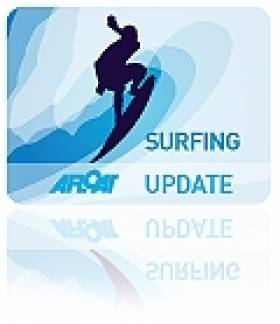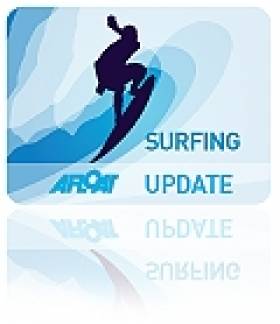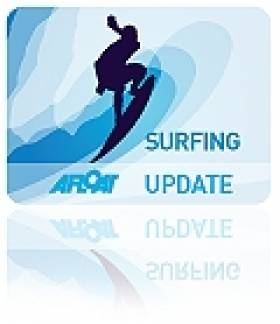Displaying items by tag: Irish Surf Rescue Club
No Tow-In Surf Session for 2012
#SURFING - The second Billabong Tow-In Surf Session will not sadly run this year, following the end of the four-month waiting period yesterday.
Organisers decided to postpone the invitation-only event till next winter after conditions off Mullaghmore Head in Co Sligo failed to reach the minimum height requirement, as Magicseaweed reports.
“We’ve had a few swells that have come close,” said contest organiser Paul O’Kane of the Irish Surf Rescue Club. “However we set the standard incredibly high with the first event and were determined to only hold the event if the conditions were as good as that, if not better.”
Magicseaweed’s Ben Freeston concurred, saying that “the conditions needed for Mullaghmore to show it’s real face are so specific you might only see them a handful of times in the best years.
“This year we have had four or five swells that were big enough to be interesting, but not quite competition standard.”
The inaugural session was organised in an effort to dispel the myth that tow-in surfing, where surfers are towed by jetski to bigger offshore waves, is an irresponsible activity.
Last year's contest was also immortalised in an upcoming documentary from Mully Productions.
The Wait Begins for Second Tow-In Surf Session
#SURFING - The waiting period for the second Tow-In Surf Session at Mullaghmore Head is now under way.
The invite-only list of the world's top big wave surfers has until 1 March 2012 to try to best the monster waves ridden in last February's inaugural contest.
Irish pioneers Richie Fitzgerald, Peter Conroy and Glyn Ovens will be on call for the return event, which has also invited back open teams winners Benjamin Sanchis and Éric Rebière, according to Surfworld Bundoran.
Sanchis is also the 2011 Billabong XXL biggest wave award winner, and intends to defend his crown in Sligo.
“Mullaghmore is a spectacular wave, but you really need to be prepared to surf big waves there," he said.
The first Tow-in Surf Session - which was even immortalised in a documentary - was organised by the Irish Surf Rescue Club in part to dispel the myth that tow-in surfing, where surfers are towed by jetski to bigger offshore waves, is an irresponsible activity.
“Our team has put an enormous amount of training, both here and abroad, to ensure that the sport of tow surfing and this event can be as safe as possible," said organiser Paul O'Kane.
The latest news on the second Tow-In Surf Session will be made available on the Billabong website HERE.
Surfers Take On Big Waves in Sligo
More than 20 of Ireland's and Europe's top surfers took on the monster waves at Sligo’s Mullaghmore Head at the weekend in Ireland's first ever 'big wave' surf contest.
The Tow-in Surf Session was organised by the Irish Surf Rescue Club in part to dispel the myth that tow-in surfing - where surfers are towed by jetski to bigger offshore waves - is an irresponsible activity.
Club president Paul O’Kane told The Irish Times: “Our surf riders and personal watercraft operators are all very safety conscious, highly trained, and contests like this can help to further develop skill sets.”
Eric Ribiere and Benjamin Sanchis from France took top place in the open category in a contest that rewarded skill and commitment on the biggest waves. Peter Conroy and Gyln Ovens came first in the Irish division, follwed closely by Al Mennie and Andrew Cotton.
Awards went to professional boarder Gabe Davies for best wave, Al Mennie for best barrel and Richie Fitzgerald for heaviest wipeout.
Easkey Britton also held her own as the only female competitor on the day, catching a solid 20-foot wave.
Click HERE for more video of the contest's big wave surfing action.
Irish Surf Rescue Club
Irish Surf Rescue Club, c/o Paul O'Kane, Killeenduff, Easky, Co. Sligo. Tel: 086 385 4016, email: [email protected]
Have we got your club details? Click here to get involved


























































